Introduction: Why SaaS Tools Are Crucial for Startup Founders
Starting a business is a journey filled with challenges, and for startup founders, every decision can make or break their success. In today’s digital age, one of the most impactful decisions is choosing the right software tools. Software as a Service (SaaS) platforms offer flexible, scalable, and cost-effective solutions to help founders optimize their operations. Whether it’s automating routine tasks, managing projects, or handling customer relations, SaaS tools are essential to streamline processes and boost efficiency.
In this article, we’ll explore 7 SaaS tools that every startup founder should consider integrating into their business operations. These tools will not only help save time but also allow founders to focus on scaling their business and achieving long-term success.
Slack – Streamlining Team Communication
Why Slack is Essential
Effective communication is the backbone of any successful startup, and Slack offers a powerful way to keep your team connected. Whether you’re working with remote employees or a distributed team, Slack facilitates real-time messaging, file sharing, and collaboration.
Key Features:
- Channels: Organize conversations into specific topics or projects.
- Direct Messaging: Easily communicate one-on-one with team members.
- Integrations: Sync with tools like Google Drive, Trello, and more to centralize workflows.
- Searchable History: Quickly find past conversations and files.
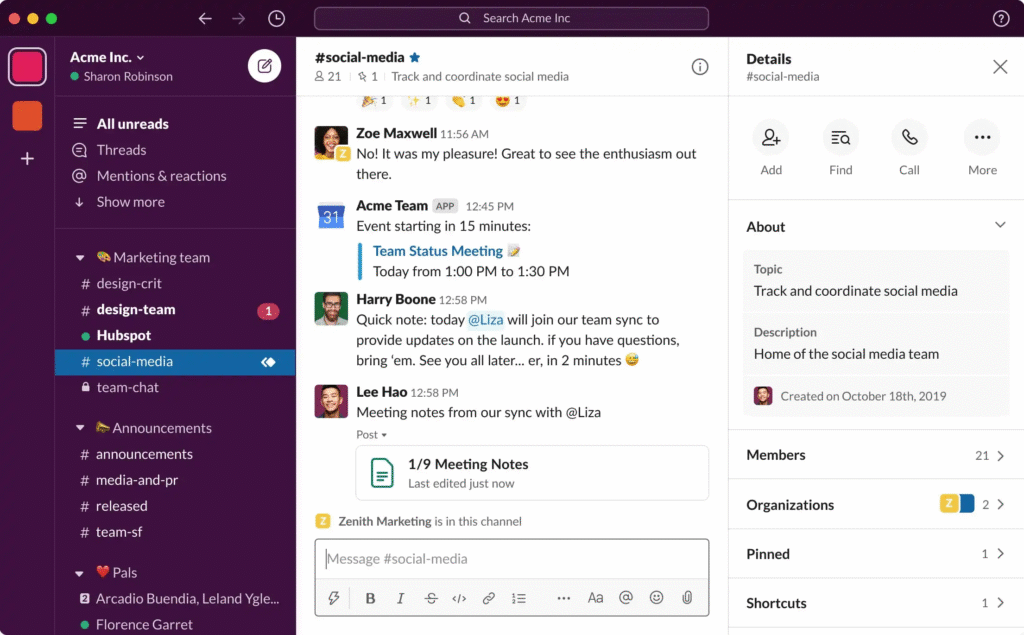
Trello – Simplifying Project Management
Why Trello is Essential
When you’re juggling multiple projects as a startup founder, staying organized is crucial. Trello’s visual interface allows you to manage tasks and deadlines effortlessly with boards, lists, and cards. It’s an intuitive tool that helps teams track progress, assign tasks, and collaborate in real-time.
Key Features:
- Boards & Lists: Organize projects visually.
- Task Assignments: Easily delegate tasks to team members.
- Due Dates: Set deadlines to keep projects on track.
- Power-Ups: Enhance functionality with integrations for time tracking, calendar views, and more.
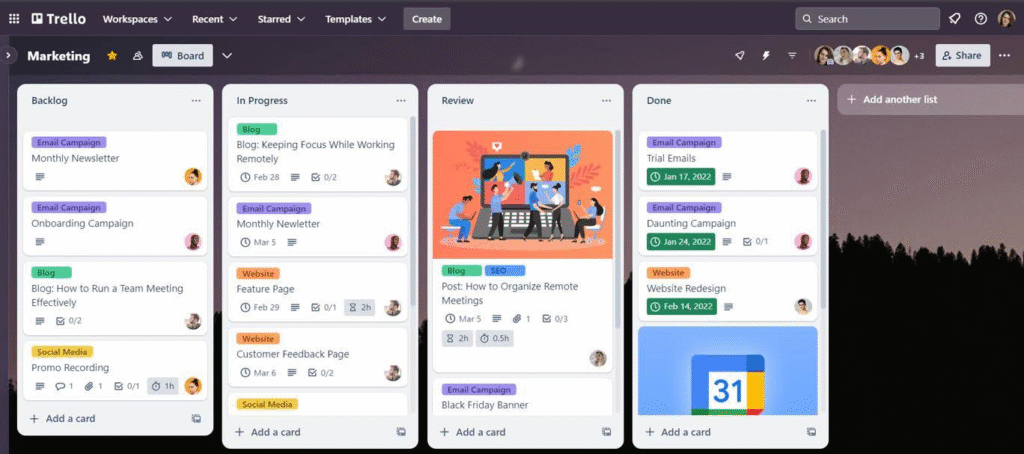
HubSpot – Automating Marketing & Customer Relationship Management (CRM)
Why HubSpot is Essential
Marketing and customer relationship management are fundamental to growing your startup. HubSpot offers a comprehensive suite of tools for lead generation, email marketing, sales, and customer service. As an all-in-one platform, HubSpot makes it easy to automate your marketing efforts and nurture leads through the sales funnel.
Key Features:
- Email Marketing Automation: Set up personalized workflows to engage with leads.
- CRM: Track customer interactions and data to improve service and sales efforts.
- Lead Generation: Capture leads via forms and landing pages.
- Analytics: Gain insights into your marketing efforts with powerful reporting tools.
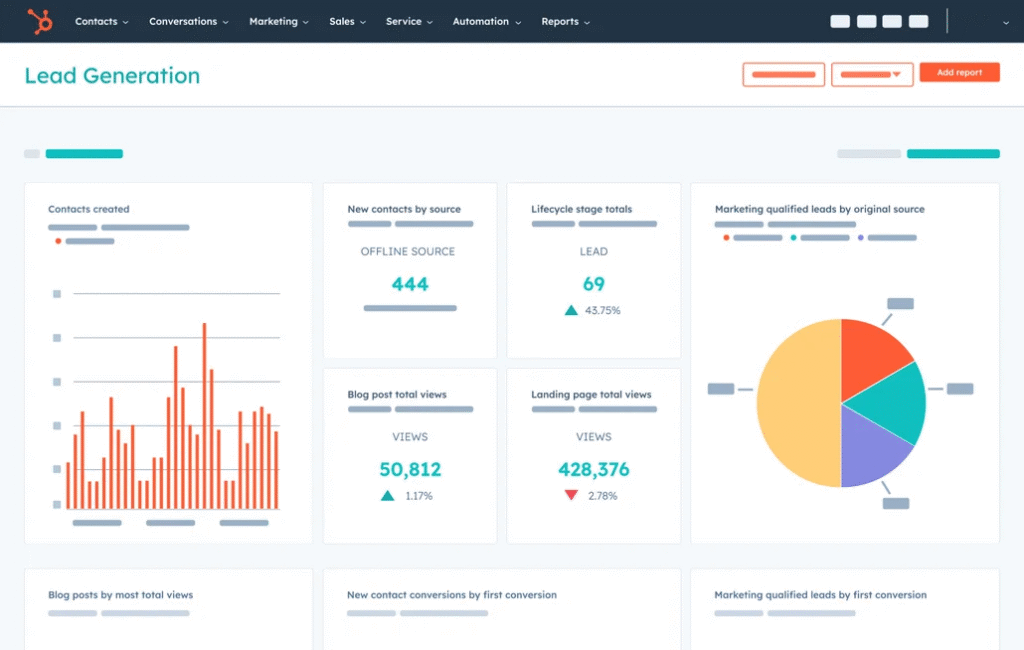
Canva – Creating Professional Designs Without a Designer
Why Canva is Essential
For startup founders, having professional designs for marketing materials, social media, and branding is essential—but not every startup has a graphic designer. Canva is an intuitive design tool that empowers anyone to create stunning graphics without the need for advanced design skills.
Key Features:
- Templates: Access thousands of customizable templates for social media, presentations, and more.
- Brand Kit: Save brand colors, fonts, and logos for consistent design.
- Collaborative Tools: Work with your team on designs in real-time.
- High-Quality Downloads: Export designs in various formats, including print-ready PDFs.
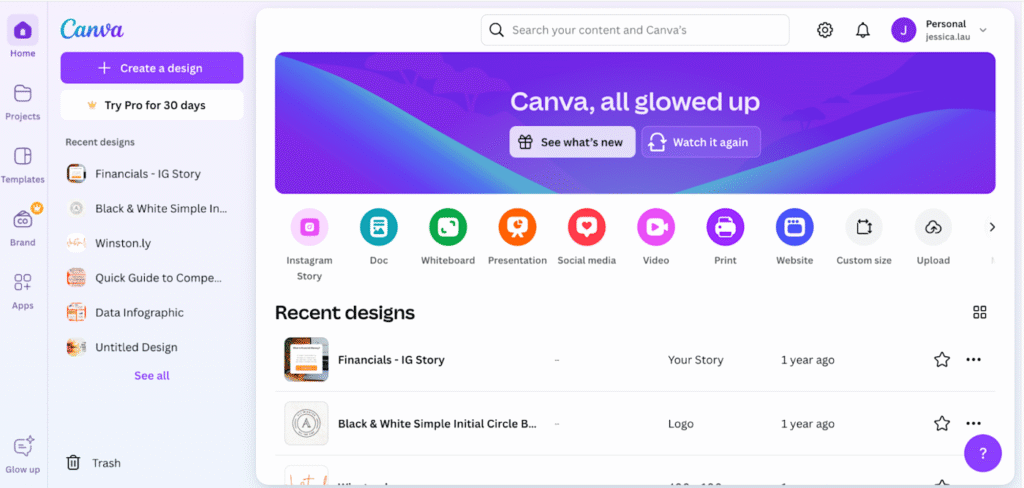
Zapier – Automating Workflows and Integrating Tools
Why Zapier is Essential
Startups often use a wide range of SaaS tools, and keeping everything connected can become overwhelming. Zapier solves this problem by allowing you to automate workflows and integrate tools. With Zapier, you can set triggers between apps, automate tasks, and save time on manual work.
Key Features:
- App Integrations: Connect over 3,000 apps, including Google Sheets, Slack, and Trello.
- Automated Workflows: Set “Zaps” to automate routine tasks.
- Customizable Triggers: Create specific actions based on different conditions.
- Real-Time Sync: Ensure all apps work seamlessly together without manual updates.

QuickBooks – Managing Finances and Accounting
Why QuickBooks is Essential
Managing finances is one of the most important aspects of running a business, and QuickBooks offers a comprehensive solution for small businesses. From tracking expenses to generating financial reports, QuickBooks simplifies accounting and ensures that you stay on top of your finances.
Key Features:
- Expense Tracking: Automatically categorize and track business expenses.
- Invoice Generation: Create professional invoices and send them to clients.
- Tax Filing Assistance: Get support for calculating and filing taxes.
- Financial Reports: Generate profit and loss statements, balance sheets, and more.

Asana – Task and Workflow Management
Why Asana is Essential
Efficient task management is key to maintaining productivity in a startup. Asana offers a streamlined approach to organizing tasks, assigning responsibilities, and tracking progress across projects. Whether you’re managing a product launch or a marketing campaign, Asana helps ensure that everything is on track.
Key Features:
- Task Management: Break down tasks into manageable steps.
- Project Timelines: Visualize project deadlines with Gantt charts.
- Collaboration Tools: Discuss tasks with team members and add comments.
- Integrations: Connect with tools like Google Calendar, Slack, and more.
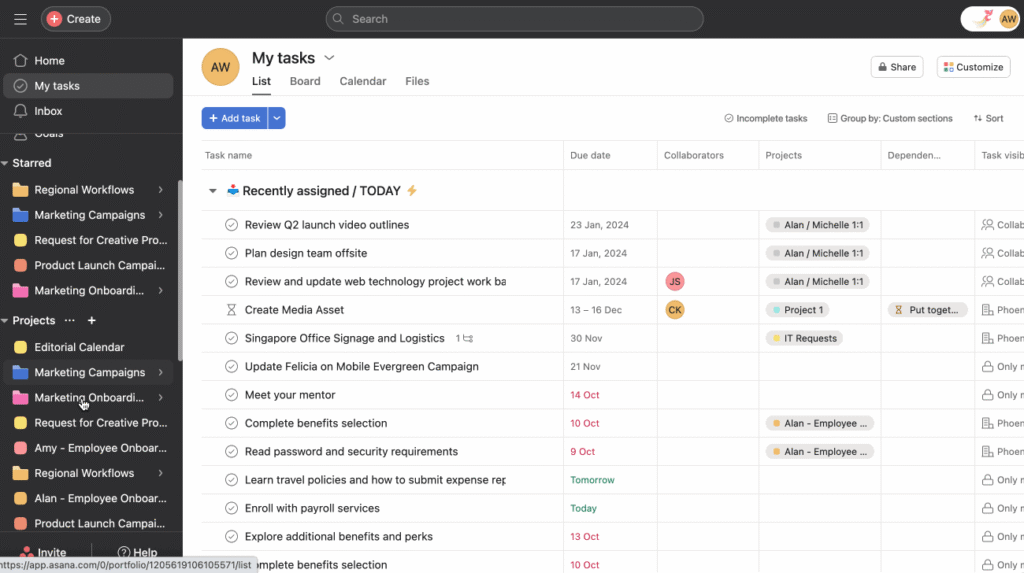
Conclusion: Boosting Your Startup’s Success with These 7 SaaS Tools
In conclusion, SaaS tools are an essential part of every startup’s toolkit. From improving communication and productivity to automating marketing efforts and managing finances, the right tools can save time, reduce errors, and help you scale faster. By incorporating tools like Slack, Trello, HubSpot, Canva, Zapier, QuickBooks, and Asana, startup founders can focus on what truly matters: growing their businesses.
Remember that selecting the right tools is key to a smooth workflow and efficient operations. Each tool on this list is designed to help you optimize different areas of your startup, so choose the ones that align with your specific business needs.
FAQs
1. How do I choose the right SaaS tools for my startup?
Start by identifying your business’s primary needs—whether it’s communication, project management, marketing, or accounting. Once you’ve outlined your needs, research tools that specialize in those areas. Consider the ease of use, pricing, scalability, and integrations with other tools.
2. Are SaaS tools suitable for small businesses?
Yes, SaaS tools are ideal for small businesses as they provide enterprise-grade software without the hefty price tag. Many SaaS platforms offer flexible pricing plans, making them accessible to startups and small businesses.
3. Can I switch SaaS tools as my startup grows?
Absolutely. Most SaaS tools are scalable and can grow with your business. You can start with basic plans and upgrade as your needs increase. Many tools also offer integrations to help you transition smoothly.
4. What are the benefits of using multiple SaaS tools?
Using multiple SaaS tools allows you to optimize different aspects of your business, from communication to finance. These tools are designed to work together and often offer integrations that streamline workflows.
5. Are there free alternatives to these SaaS tools?
Yes, many SaaS tools offer free versions or trial periods. However, the free versions may come with limited features. If your startup grows, you might need to upgrade to a paid plan to access advanced features.




